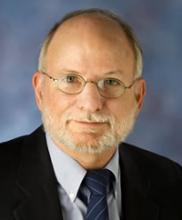非常抱歉,
你要访问的页面不存在,
非常抱歉,
你要访问的页面不存在,
非常抱歉,
你要访问的页面不存在,
验证码:

职称:Professor
所属学校:University of Iowa
所属院系: History
所属专业:History, General
联系方式:319) 335-2298
Two of the big stories of modern history are the dramatic decline of religion in the European heartland of Christianity and the very rapid expansion of Christianity in the non-western world. Jeff Cox has written a book on each (read a review that discusses both books). His first book, The English Churches in a Secular Society: Lambeth, 1870-1930 (Oxford University Press, 1982) was a detailed social and institutional history of the declining importance of the churches in one part of England. It was also one of the first systematic attempts by an historian to develop an alternative to the sociological theory of secularization as an explanation for the decline of religion in modern Europe. The English Churches in a Secular Society avoids universal Eurocentric theories of modernity, and concentrates instead on the distinctive features of English social and institutional history: the rise of the welfare state, the heritage of state imposed-religion, and peculiar patterns of sharp generational conflict that emerged among religious Nonconformists. More recently, Jeff has become interested in the rhetoric of secularization theory, and its uses as an explanatory master narrative of historical change. In 2002 he was a co-convener of a conference at the Centre for Religion and Society at the University of Amsterdam where scholars reconsidered some of the themes first raised in The English Churches in a Secular Society. He is now at work on a volume of essays based on that conference, tentatively entitled “Alternative Master Narratives of Religion in Modern Europe.” In the course of research on his first book, Jeff became interested in the fate of Christianity in those parts of the British empire where British (and other) missionaries worked for years to spread their faith, often with few visible signs of success. After many years of research on three continents, including five trips to South Asia, the publication of several preliminary articles, and an attempt to acquire two new languages, he published Imperial Fault Lines: Christianity and Colonial Power in India, 1818-1940 (Stanford University Press, 2002). This is another work of grass-roots social and institutional history, examining the highly charged social interactions between missionaries and Indians around the fault lines of imperial power, racism, and gender. (Read a review essay setting the book in context.) Addressing many of the issues raised in recent post-colonial scholarship while taking seriously the religious views of missionaries and Indian Christians, Imperial Fault Lines is largely a story of unintended consequences. Missionaries failed to achieve what they intended, but had a large impact on the lives of countless Indians through the creation of missionary educational and medical institutions. He is now at work on a shorter book, a general survey of the British missionary movement from 1700-2000, which will examine the relationship between imperialism and religion from a broad theoretical perspective. Since 1986 he has co-edited The Prairie Progressive. A Newsletter for Iowa’s Democratic Left. Jeff received his Ph.D. from Harvard University in 1978. He joined the Iowa faculty in 1977. Teaching: Jeff has regularly taught Western Civilization, surveys of modern British history, and graduate courses in European History and British Imperial History. He has also occasionally taught specialized graduate courses on "India and the Victorians" and "Victorian Images of Africa.”